Lewis Ludlow: How the Oxford Street terror plotter was caught
- Published
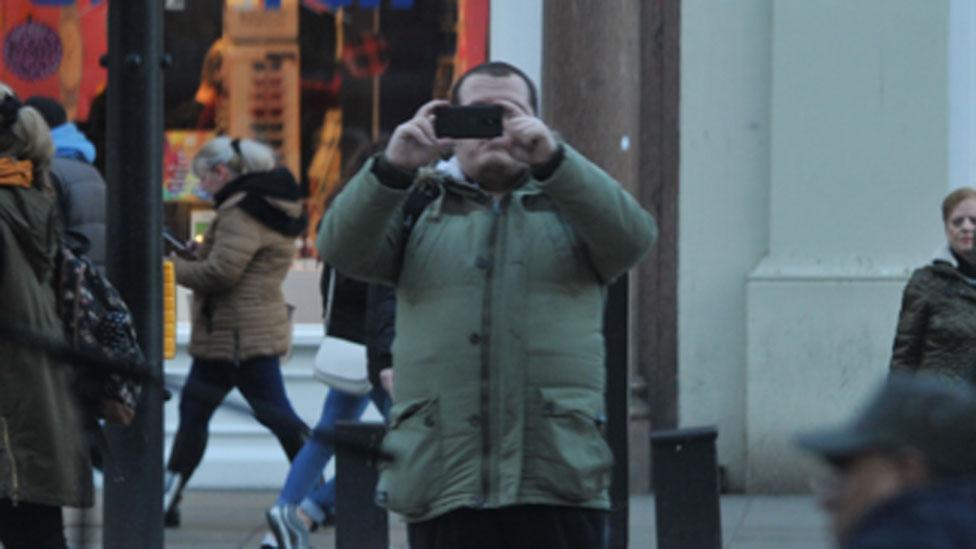
A surveillance image of Ludlow taking pictures on Oxford Street
Lewis Ludlow has been sentenced after planning to kill 100 people in a London terror attack, having been instructed by the Islamic State group (IS) to make Britons "pay in their blood". Here's the story of how he was caught.
The amateurish video is sinister and alarming.
A hooded figure calling himself "The Eagle", his face half-obscured, stares into the camera and makes a pledge.
"We love death as much as you love life so therefore my allegiance is to Islamic State. I have nothing for this country of Britain. I spit on your citizenship, your passport, you can go to hell with that."
In a halting delivery, the man - Lewis Ludlow, a 27-year-old from Rochester, Kent - rejects life in the UK and ends by stating: "May we destroy all of what you hold dear."
The speech was filmed on a mobile phone, later recovered from a storm drain near Ludlow's home.
Long a person of concern to police and MI5, Ludlow became the subject of intense surveillance early last year when he began preparations for a mass casualty terror attack. He made plans for a truck attack in central London - but had not learned to drive because he was "scared of crashing".
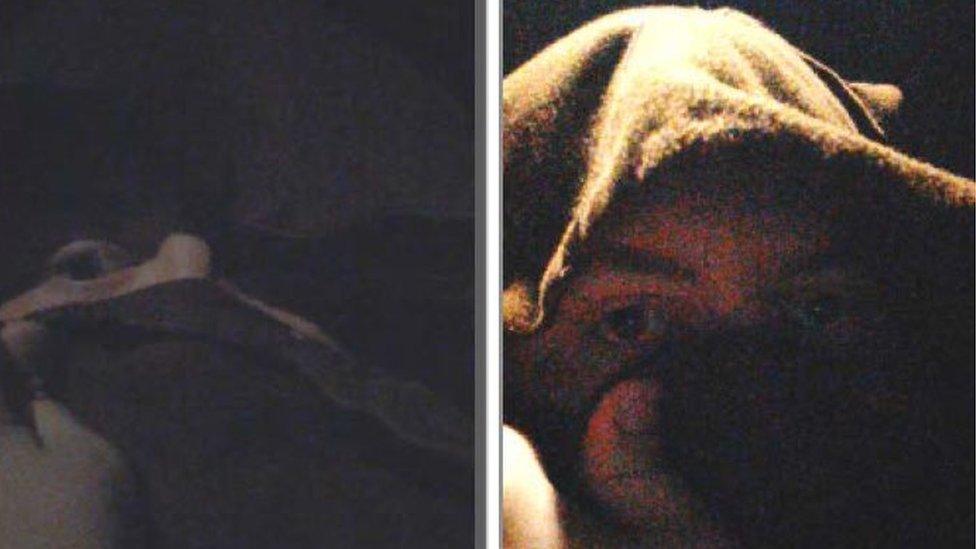
How Lewis Ludlow appeared in a video giving an oath of allegiance to the Islamic State group
Ludlow converted to Islam aged 16 and soon began associating with the hate preacher Anjem Choudary and other extremists.
He attended demonstrations, proselytised in the streets and online, and was seen with Michael Adebowale - one of the killers of Fusilier Lee Rigby - and Siddartha Dhar, who became an IS executioner after moving to Syria.
In a YouTube video he made, aged 19, the awkward but effusive Ludlow described a journey from neo-Nazism to radical Islamism, saying: "I used to hate black people and Asians and Arabs. I admired Hitler for his extermination of the Jews because I thought he did something good."
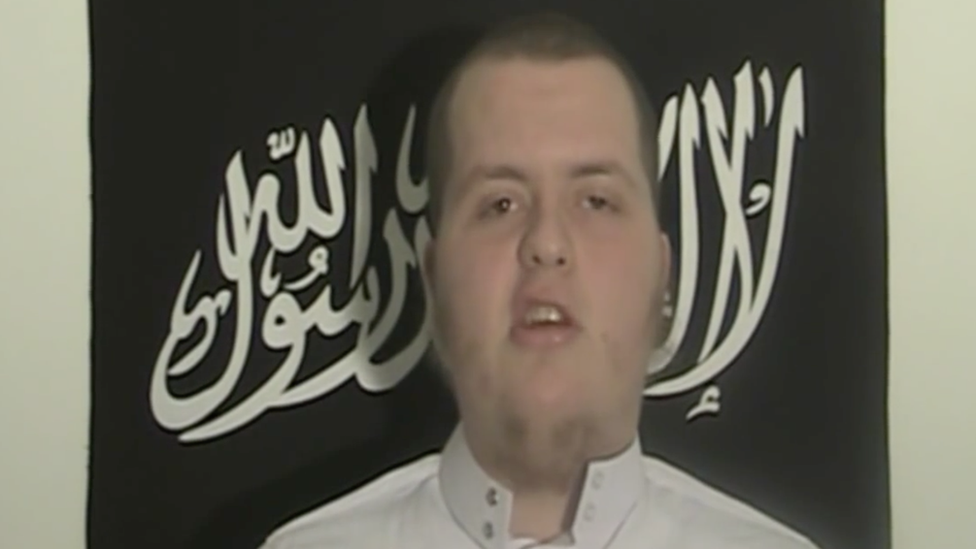
Lewis Ludlow is a Muslim convert who used the name Ali Hussain
Ludlow, who never moved away from the family home, spent years on benefits interspersed with brief periods of employment in charity shops and as a Royal Mail sorter. There were unsuccessful attempts to set him up romantically with women involved in Choudary's network.
Four years ago, he was arrested on suspicion of being a member of the banned Islamist group al-Muhajiroun, which was once led by Choudary.
'Send something lethal'
Despite not being charged, evidence showed Ludlow was in contact with a British IS fighter in Syria and had expressed the intention of travelling there.
In one message found by police, Ludlow even suggested his Post Office role could be used for terrorist purposes, saying: "Royal Mail rarely check items… It's perfect to send something lethal."
For 10 years there were attempts to enrol Ludlow in the government's de-radicalisation programme Prevent, but he resisted until October 2017 when he began a series of 17 meetings with an assigned mentor.
Ludlow sought to create the impression he was positively engaging with the scheme, which appears to have been accepted by those managing his involvement, but in fact his terrorist activity was only increasing.
In February 2018 he was stopped by police from travelling to an area of the Philippines where Jihadist groups are active. He was suspected of buying a plane ticket to Zamboanga in order to take part in terrorism.
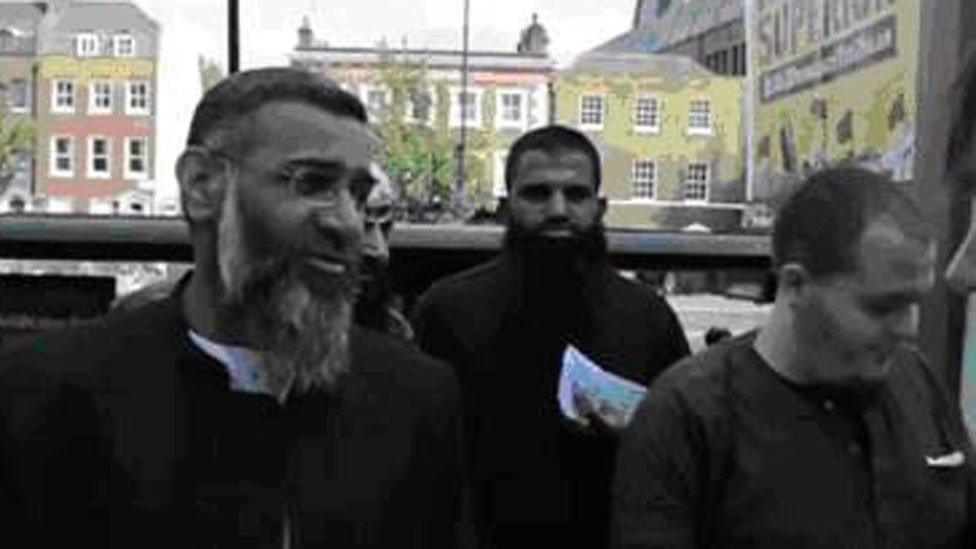
Ludlow (right) with Anjem Choudary (left)
When questioned at Heathrow, Ludlow insisted he was going abroad for sex tourism and that, despite being groomed by "Anjem Choudary's lot" in the past, he had since distanced himself from them.
Within days, detectives searched Ludlow's address and found a mobile phone he had hurriedly attempted to discard by throwing it over a neighbour's fence.
The device revealed he had been using encrypted messaging applications to communicate with a Philippines-based IS militant and was planning to move there permanently.
A subsequent official decision to revoke his passport angered Ludlow and he then switched his attention to planning an attack in the UK, encouraged and directed by the militant - a radicalised medic called Eyadzhemar Abdusalam who used the epithet Abu Yaqeen.
In March 2018 undercover investigators observed Ludlow travelling to central London, where he took photos of landmarks and crowded areas like the Disney Store on Oxford Street, as well as printing off IS material at internet cafes.
He also toured Westminster, passing the area where a deadly knife and vehicle attack had taken the lives of five victims a year earlier.
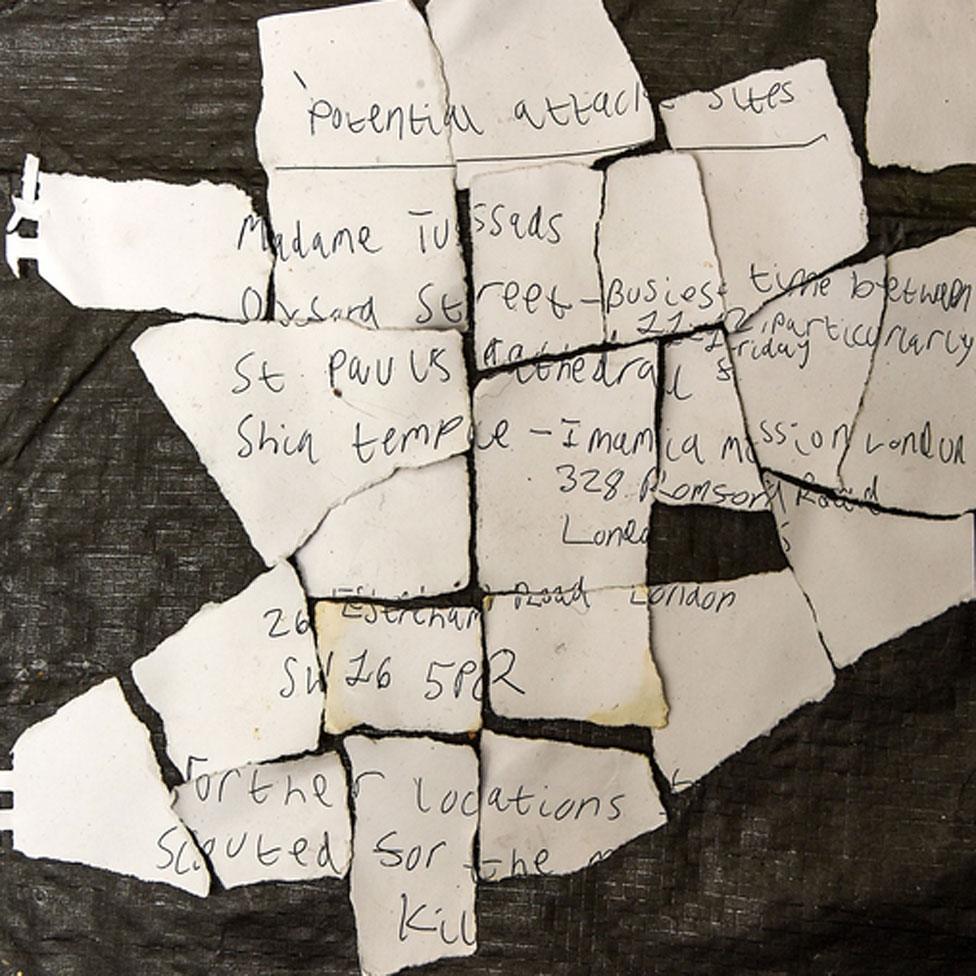
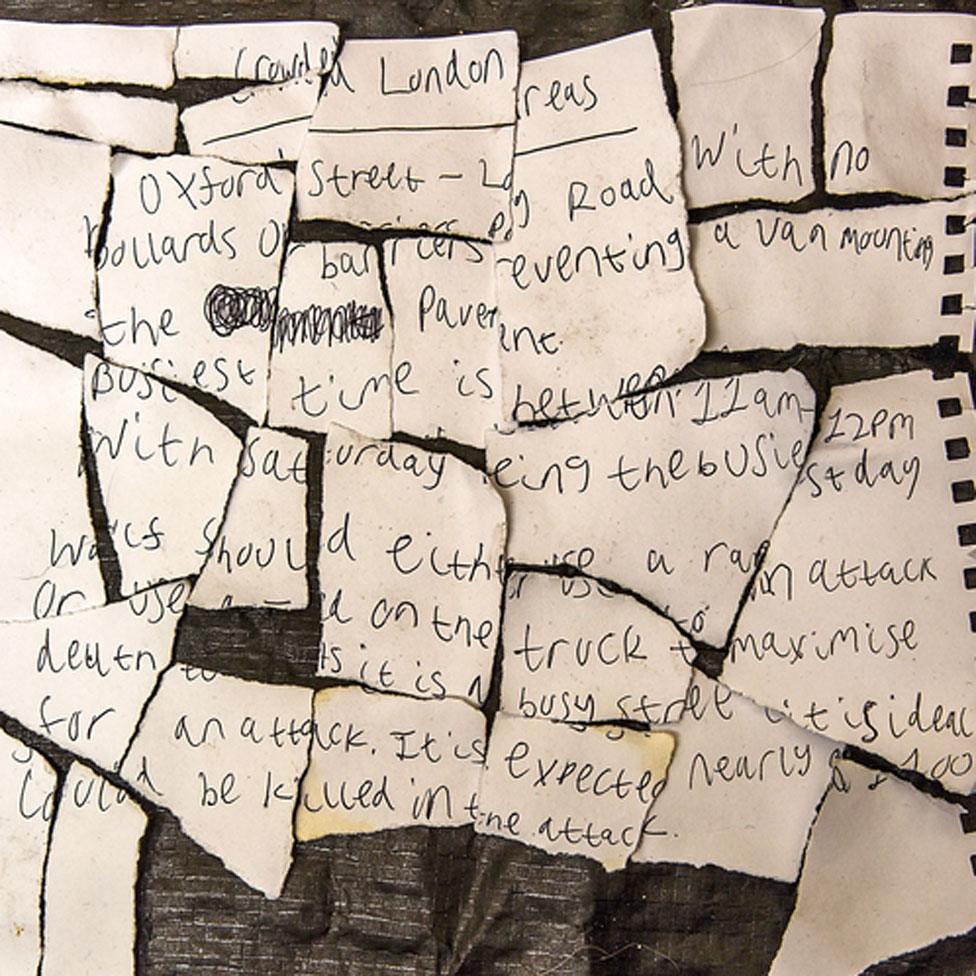
The undercover team later recovered several torn-up notes from bins outside Ludlow's Rochester address.
One note - headed "potential attack sites" - included Madame Tussauds and St Paul's Cathedral. It included the line: "Oxford Street busiest time between 11-12:00, particularly Fridays."
Another note said a bomb-laden truck could be used to "maximise death…. it is a busy street, it is ideal for an attack. It is expected nearly 100 could be killed".
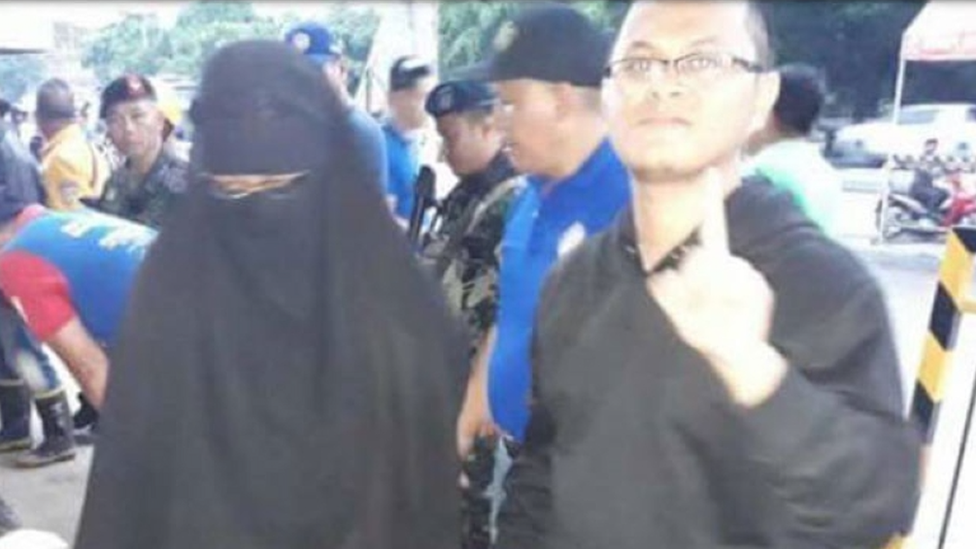
Eyadzhemar Abdusalam and wife after being arrested last year
Ludlow had also researched vehicle prices.
But he did not have a truck and in one message to Abdusalam he had stated "driving isn't easy", adding he had not learned to drive "because it's expensive, plus a bit scared of crashing".
A vehicle attack would therefore require an accomplice.
At this stage an undercover officer, posing as a UK-based extremist, began communicating with Abdusalam on the encrypted messaging platform Telegram.
The officer was told to engage in reconnaissance of potential targets - "scout the most crowded area, take pictures" - and to make a video pledging allegiance to IS.
A photo of a written pledge by Ludlow was sent to the officer, who was informed: "The other wolf did this."
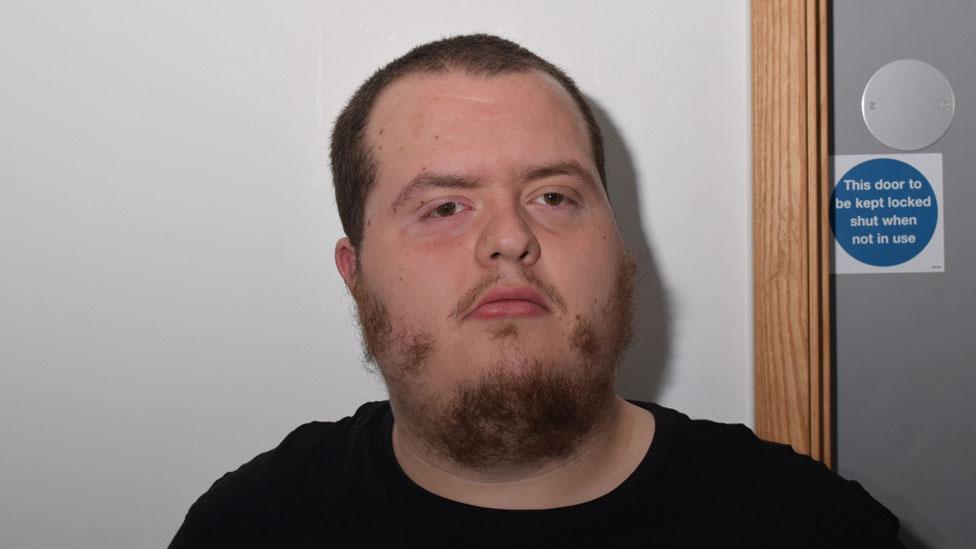
Ludlow after being arrested
In a reference to Ludlow, the detective was told he would soon "meet Eagle" and that they would "work as a team".
The officer was constantly pestered for money and it emerged that Ludlow was using a fake Facebook page - called Antique Collections - to channel funds to militants.
In April last year, Abdusalam suspected he may be under surveillance, prompting him and Ludlow to change their social media accounts.
This development led to Ludlow disposing of the phone containing his IS pledge videos, which he had apparently been asked to film by Abdusalam.
Such was the official concern about what Ludlow may do, he was placed under 24-hour armed surveillance and a decision was made to intercept him were he to head for central London.
Within days he was arrested in a street near his home.
When Abdusalam and his wife were arrested in the Philippines they were found to be in possession of weapons. They are currently being held in custody charged with explosives offences.
'I'm naive but not stupid'
During police interviews Ludlow placed his head in his hands when detectives played the IS pledge footage, which he must have been hoping was hidden forever.
When the indictment was read during his first court appearance, Ludlow stated "I declare myself innocent of that charge" in response to each count - but he eventually pleaded guilty to preparing acts of terrorism and terrorist fundraising.
A dispute about the basis of his pleas meant he was called to give evidence in court.
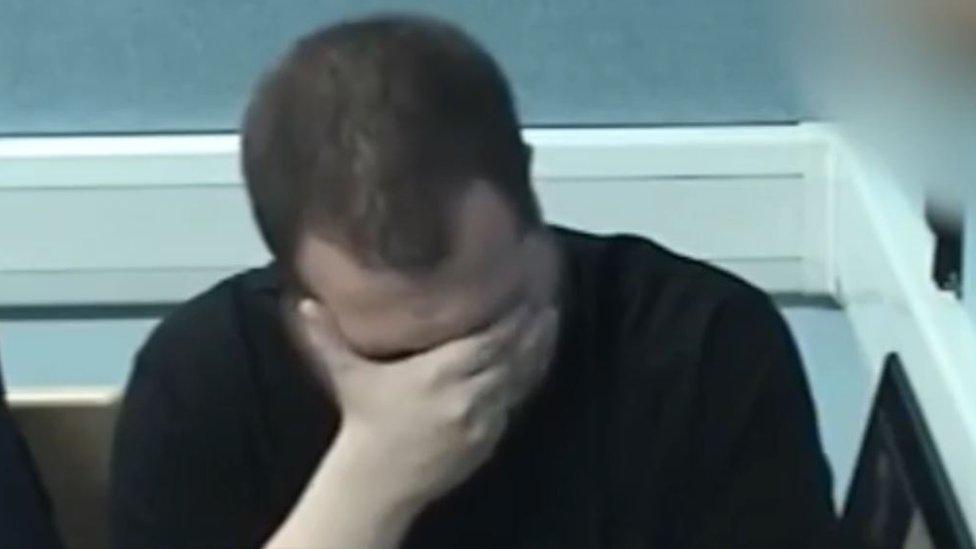
Police footage showed Ludlow listening back to the recording of himself declaring allegiance to IS
Ludlow insisted that - by the time of his arrest - he had disengaged from the terror plot and had become absorbed in a relationship with an Indonesian woman called Ummo, having met her online.
Describing how he had changed his Facebook relationship status to "engaged" in order to placate his beloved, Ludlow explained: "I was considered quite a good-looking man on social media so she was a bit jealous."
The court heard that Ludlow had autism and depression, but it was revealed he had been overheard telling another extremist: "I have been exaggerating my depression and they think I'm stupid. I'm naive but not stupid or mad."
The court was also told he had agreed to "fake" his involvement in the Prevent scheme. Ludlow had actually carried out reconnaissance of attack targets on the same day as one of his Prevent meetings.
The prosecution said Ludlow had stuck to the plot as long as he could and had lied in order to downplay his culpability and radical mindset.
Despite attempts to stop Ludlow being radicalised in the first place and then to de-radicalise him after those efforts failed, he had persisted in his extremist activity and became involved in the most serious form of terrorism: a plot to kill dozens of civilians.
- Published6 March 2019
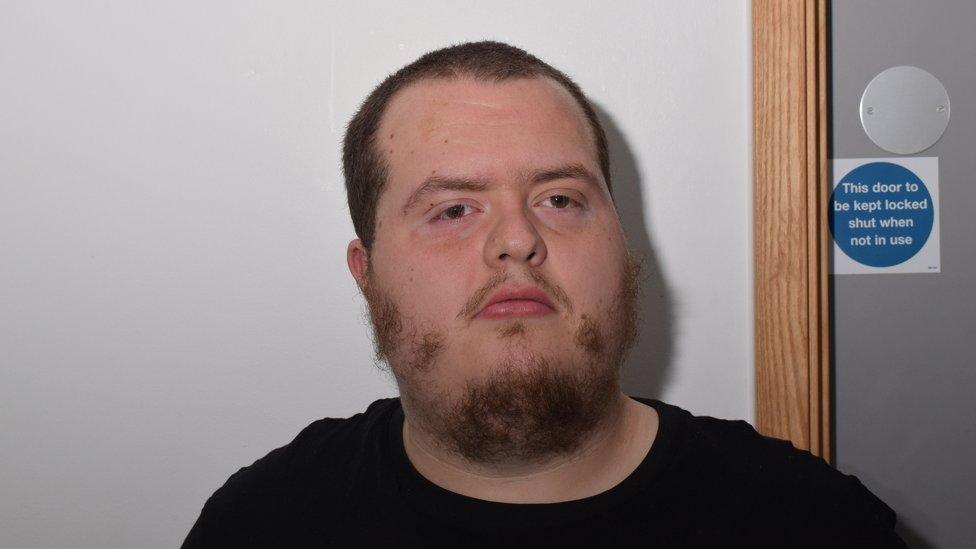
- Published7 January 2019
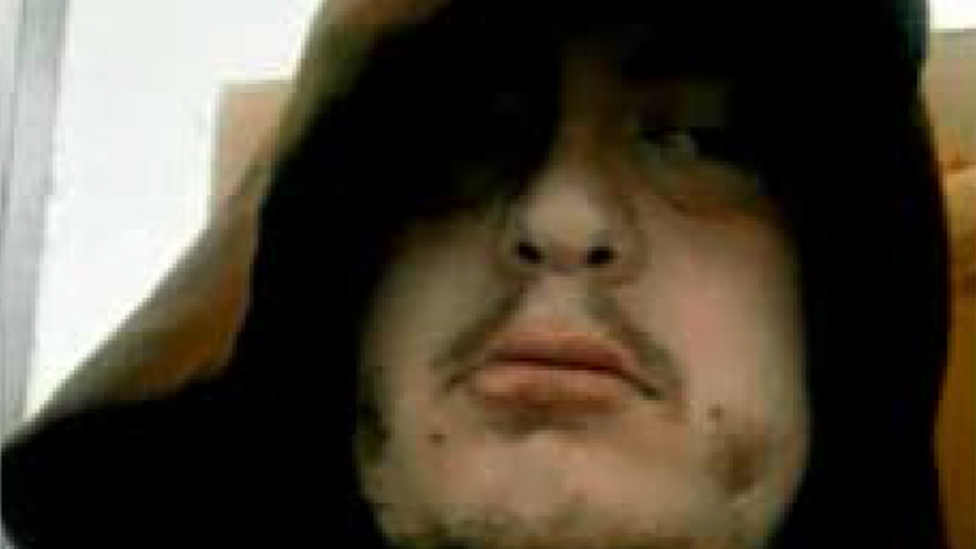
- Published4 January 2019
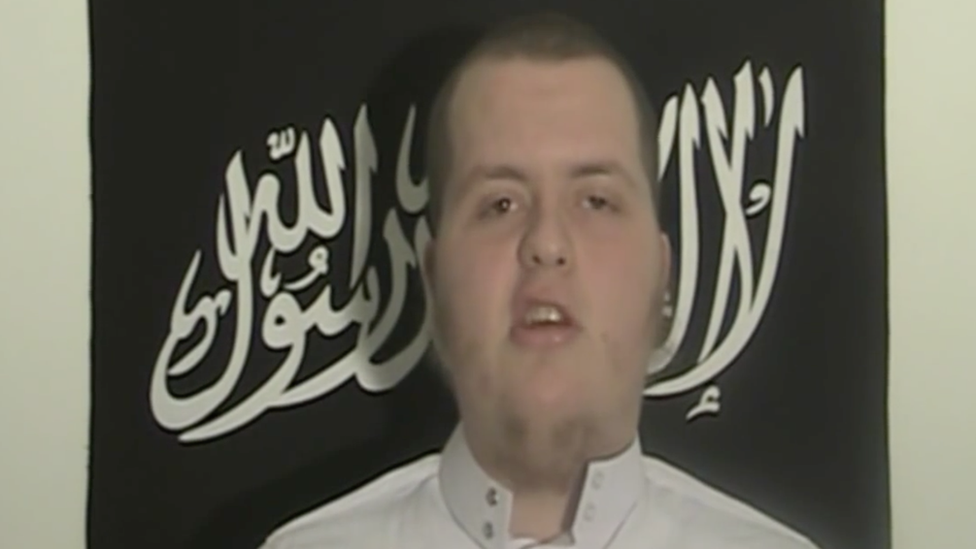
- Published10 August 2018
